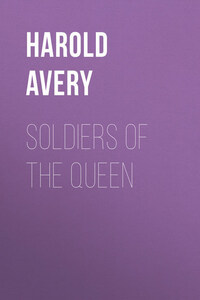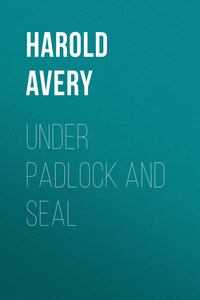CHAPTER I.
A DAY OF TROUBLE
"They've seen us! Run for it!"
My chosen friend, Miles Coverthorne, was the speaker. He sprang to his feet as he uttered the words, and darted like a rabbit into the bushes, I myself following hard at his heels. The seasons seem to have come earlier in those days, and though May was not out, the woods and countryside appeared clothed with all the richness of leafy June.
At headlong speed we dashed through the underwood, stung by hazel switches which struck us across the face like whips, and staggering as our feet caught in thick tufts of grass.
"Who is it – keepers?" I inquired.
"No; 'Eagles'!" was the quick reply.
If anything had been needed to quicken my pace, this last word would have served the purpose. We both rushed wildly onward, as though our very lives were at stake.
It may be guessed that Miles did not mean to imply that a number of real eagles were swooping down upon us with the intention of bearing us away to some rocky crags, there to form an appetizing repast for their young; the word had, in this case, a special meaning, to explain which a slight digression will be necessary.
Many things have altered since the year 1830, and in no direction are greater changes manifested than in the schools and school life of that period compared with those of the present day. What the modern boy at Hobworth's School (so called after its worthy founder) would think of the place if suddenly transferred back to the days when I went there as a boarder, I cannot imagine. Whole chapters might be devoted to a comparison of the past with the present, but for the purposes of our story only one point need be considered, and that is the great difference in the style and character of recreation out of school hours.
Though organized games, such as cricket, no doubt existed in the big public schools, they were unknown at Hobworth's. Such sports as prisoner's base, marbles, and an elaborate form of leap-frog called – if I remember rightly – "fly-the-garter," we certainly indulged in; but, as might be expected, such amusements did not always satisfy the bolder spirits – the result being that these found vent for their adventurous inclinations in various expeditions, which more than once landed them in serious trouble with farmers and gamekeepers.
I cannot say that there was any vicious intention in these raids and forays. It was perhaps difficult for us boys to see the justice of certain men claiming all the birds' eggs, squirrels, or hazel-nuts in the neighbourhood, especially as these things were of no value to their avowed owners. Again, if pheasants were disturbed, or fences broken, or perhaps a rabbit knocked over for the joy of subsequently cooking it surreptitiously in a coffee-pot, it was, after all, a very small matter, and not worth making a fuss about. So, at least, the youngster of that period would have argued.
Those were not happy times for the small and weak. Brute force was far too highly esteemed, and the champion fighter of a school was thought as much or even more of than the leading cricket or football player is to-day. It was an unpardonable sin for a small boy to sneak, but the cruelty and oppression of the more evil-minded of his elders was hardly deemed worthy of censure. Out of school hours very little notice was taken by masters of how their pupils employed their time, and as long as the latter refrained from bringing the place about their ears with any acts of particularly flagrant mischief, they were left pretty much to their own devices.
Partly for mutual protection against the violence of their fellows, and partly in pursuit of the questionable forms of recreation already referred to, the boys had formed themselves into a number of "tribes," each under the leadership of some heavy-fisted chieftain to whom they swore allegiance, at the same time sharing all their worldly possessions with the other members of the band.
In course of time these various small communities became gradually absorbed into two large rival bands known as the "Foxes" and the "Eagles," the peculiarity of name being due to an exciting story of adventure among the Indians which had been going the round of the school; for books of that kind were, in those days, a rare and highly-prized possession.
Skirmishes between parties of the two tribes were of frequent occurrence, and expeditions with various objects, and not unfrequently exciting endings, were indulged in almost every half-holiday afternoon. Miles and myself were numbered among the "Foxes," while at the head of the "Eagles" was a notorious bully named Ben Liddle, who possessed all the nature and none of the nobility of the actual savage. This leader had lately laid claim to all the woods and country on the north side of the road which passed the school, as the hunting-ground of the "Eagles," and had thrown out dark hints of a terrible vengeance which should be meted out to any luckless "Fox" who should be captured encroaching on this preserve.
As this meant nothing less than calmly appropriating all the places where any good sport could be obtained, the claim was naturally resented by the "Foxes;" and though Kerry, our chief, had not as yet made any public pronouncement on the subject, it was understood that before long the matter would be discussed, probably in a grand pitched battle between the tribes, when this and other causes of disagreement would be settled once for all.










